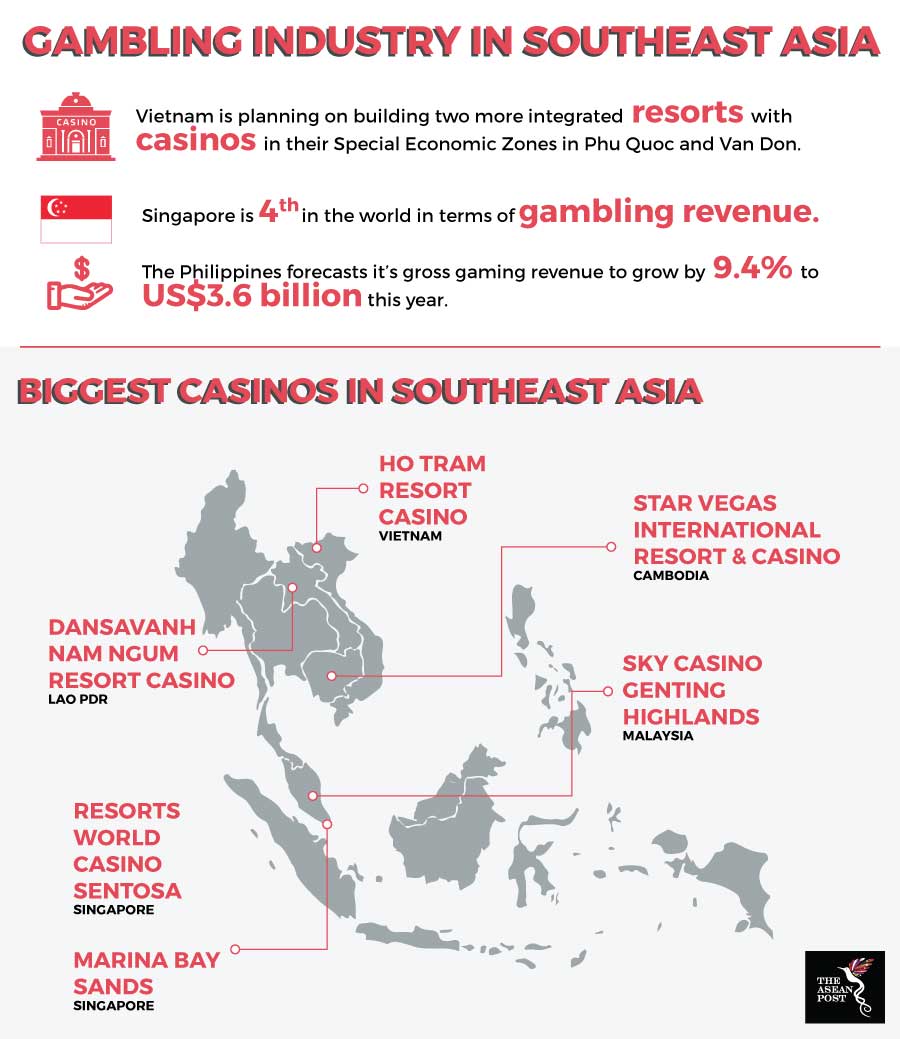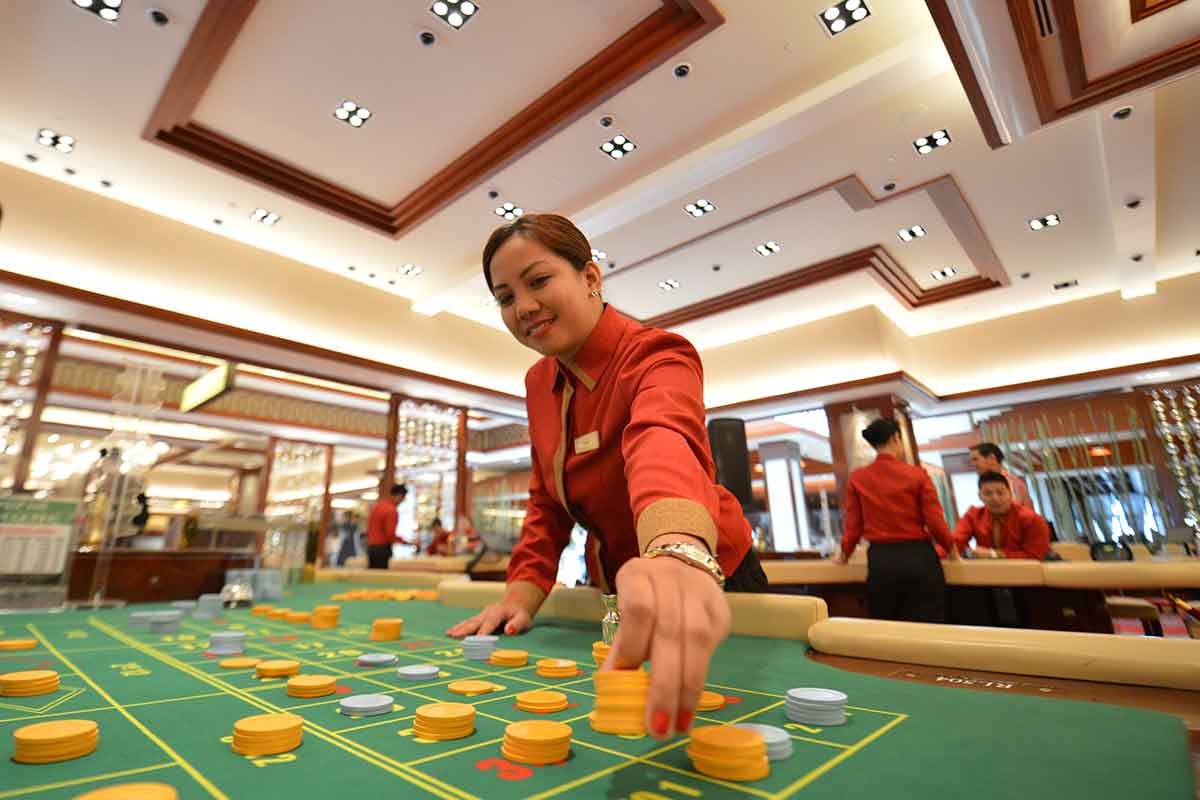When talking about gambling in Asia, the first place that usually springs to mind is Macau – also dubbed the Monte Carlo of the Orient – and it is with good reason. Often regarded as the gambling capital of the world, gambling tourism is Macau’s biggest source of revenue, accounting for 50 percent of its economy. However, Macau’s reputation as Asia’s gambling destination could change very soon considering the booming gambling industry in Southeast Asia.
Gambling in Macau is already beginning to lose steam. In 2016, Macau reported a 26-month slump in gambling revenue. While the figures have picked up slightly, it seems that the gambling industry in Macau hasn’t fully recovered. It was reported in January that Macau’s casino stocks tumbled after news that gaming revenue didn’t meet the median estimate of a 20 percent increase.
Meanwhile, the gambling industry in Southeast Asia has been on the rise in the past decade. Casinos are mushrooming throughout the region with at least three planned in Vietnam and two in the Philippines. Existing casinos in the region are also seeing steady growth in revenue.
Perhaps the best-known gambling hub in Southeast Asia today is Singapore. While there are heavy restrictions on locals to enter and gamble at the casino, the tables at the Marina Bay Sands continue to be a top draw for tourists. Fitch Ratings mentioned in a 2018 casino market outlook report that gross gaming revenue in Singapore’s casinos is likely to grow in 2018.
 Source: Various
Source: Various
Fastest-growing casino hub
The Philippines on the other hand is currently among the fastest-growing casino hubs in Asia. The country is forecasting gross gaming revenue to grow by 9.4 percent to US$3.6 billion this year. Despite the casino attack in Manila last year which killed 36 people, the Philippines still recorded a 7.6 percent increase in revenue for 2017.
The main gambling hub in the Philippines is also known as Entertainment City, where integrated resorts (resorts that integrate features such as convention facilities, theme parks, and casinos) like the City of Dreams Manila, Solaire Resort & Casino and Genting’s Resorts World Bayshore are the main attractions.
In Vietnam, the government there has recently overturned a ruling which outlawed gaming for their local population. Besides that, casinos are among the projects planned for Vietnam’s Special Economic Zones (SEZs) in Phu Quoc and Van Don. These projects are expected to lead a wave of casino investment in the country. One of Vietnam’s biggest ongoing casino projects is the US$4 billion Ho Tram Strip project. Upon completion, the Grand Ho Tram Strip will include five integrated resorts and a golf course.
Among the main drivers of such investment in casinos and integrated resorts is the growing number of Chinese tourists in the region, who make up the bulk of visitors to these casinos and resorts. With the Belt and Road Initiative (BRI) well underway, accessibility to different parts of Southeast Asia is increasing. This is why Vietnam is planning to develop Phu Quoc and Van Don into a gambling hub, due to their proximity to China. Even small casino cities such as Sihanoukville in Cambodia is thriving with property prices ballooning due to the growing number of Chinese visitors.
With everyone rushing to cater to the flood of Chinese tourists, there could easily be a danger of oversupply. There are fears in the industry that the growing number of casinos could cannibalise the market.
Other fears that could possibly threaten these new casinos is the emergence of online gambling. The Philippines reported that growth in revenue from gambling in the country has mostly come from offshore gaming operators.
While it could be a good thing that governments are diversifying their sources of revenue, it could spell bad news for casino operators. However, since many casinos in the region offer more than just gambling but also theme parks, convention facilities and shopping malls – something online casinos cannot offer – the emergence of gambling websites shouldn’t be a cause of great concern.
Related articles:
Can tourism boost Lao’s economy?
F&B industry fuelled by middle class
Capitalising on Southeast Asia’s diverse food
`
